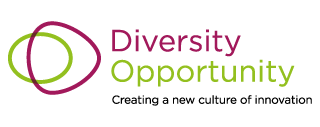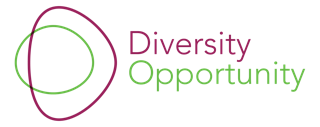
22 Jan Knowledge and management of Bias to improve competitiveness
Roberta Lulli ha intervistato per noi Rachael Wilson, CEO EW Group, partner di Diversity Opportunity.
EW Group is a UK-based diversity consultancy, founded in 1992. Central to the  EW Group ethos is a practical and positive approach. The company creates bespoke training programmes on diversity and inclusion topics for clients in a wide range of business settings. They use actors, immersive exercises and real-life case studies to bring diversity and inclusion to life, always making sure that the learning can be applied in a way which strengthens the overall business. They regularly carry out diversity diagnostics and research, as well as leading diversity strategy sessions with senior teams. EW Group is proud to work in partnership with Diversity Opportunity to provide diversity specialists on-the-ground in Italy and elsewhere in Europe.
EW Group ethos is a practical and positive approach. The company creates bespoke training programmes on diversity and inclusion topics for clients in a wide range of business settings. They use actors, immersive exercises and real-life case studies to bring diversity and inclusion to life, always making sure that the learning can be applied in a way which strengthens the overall business. They regularly carry out diversity diagnostics and research, as well as leading diversity strategy sessions with senior teams. EW Group is proud to work in partnership with Diversity Opportunity to provide diversity specialists on-the-ground in Italy and elsewhere in Europe.
How would you explain to lay-people, the powerful impact that diversity and inclusion can make to the society?
I would say that diversity already exists. Our societies are diverse in many ways, from the things we can see like skin colour, age and gender, to the things we cannot see, like mental health, education and upbringing. Inclusion is the act of bringing together people who are different – for example in the workplace, in a supermarket, or in a doctor’s surgery – and creating an environment in which everyone has an equally positive and fair experience. Inclusion makes people feel valued and listened to. If everyone in society felt included, valued and listened to we’d see improved outcomes across all types of public life: crime, health, education and the economy.
What are the main activities that EW Group does to reach its goals?
The part of society we focus on is the workplace. There are lots of workplace inequalities which we help organisations overcome through tailored training programmes and other kinds of targeted work. For example, lots of companies recognise that their business would be stronger if it could recruit more diverse applicants. We work with them to review how they go about attracting talented people to the company and how they select and interview those people. While reviewing their recruitment process we’d identify the moments when diverse applicants may be dissuaded from applying or disproportionately deselected from the process. And we’d work with the company to remove those barriers so that talented people of all different types have an equal chance of interview success.
Can you share some practices that can address unconscious bias in the workplace?
One of the most common unconscious biases is the ‘like me’ or ‘affinity bias’. We are all naturally drawn to people who we perceive are like us in some way, and we treat them preferably to others. Next time you are making a decision about hiring or promoting someone, or even just offering them an opportunity to demonstrate their skills, stop and ask yourself how similar this person is to you. Did you perhaps grow up in the same region or attend the same university? Do you have a shared interest? These are common triggers which cause us to show a preference for one person over another. All you must do is pause, question yourself and then seek another opinion from a colleague who can be objective about your decision. It is likely that you have made the right choice but it’s good practice to check.
How can D&I be a priority for companies when they have other big issues to deal with, such as limited time and budgets, as well as working in competitive industries?
Diversity and inclusion activity should always be linked to a business goal and measured. There are bottom line financial benefits in retaining talented people, increasing staff productivity and engagement, reducing staff turnover, winning new clients. There are also costs associated with in-action like dysfunctional teams, bullying, harassment and grievances. We often run short sessions with senior leaders to focus them on the business case for diversity and inclusion. After a session like this diversity and inclusion always becomes a priority. Simply put it’s something that a company must consider if they want to get ahead of the competition.
Could you recommend some effective strategies for Italy and it’s employers, to ensure people have an inclusive and diverse environment?
I don’t know the social and political landscape in Italy well enough to make a specific recommendation but I would say generally that some companies spend a lot of time and resources bringing diversity into the company only to find that diverse groups don’t stay. It’s what we call ‘revolving door syndrome’! Companies need to work hard to make sure their environment and culture are inclusive so that those people you recruit to the business stay in the business. Inclusive working cultures are made up of big and small things, from how the senior leaders address the junior members of staff, to how teams celebrate and reward success, to how the company weaves inclusion into its values. If you want to know how inclusive your culture is, you need to ask your workforce and again, measure your improvements.
What is your diversity challenge, on an personal level ?
I have biases like everyone else! Last week I was talking to a friend about their PhD supervisor who was giving them a lot of criticism. My immediate assumption was that this academic was a man but it was in fact a woman. Our biases are deep-rooted and determined by our upbringing, education and environment. Once you know about your biases it’s easier to notice them and catch yourself out but overcoming them is a continual process of learning and reflection.
Traduzione
EW Group è una società di diversity consultancy con sede nel Regno Unito, fondata nel 1992. L’ethos del gruppo EW rappresenta un approccio pratico e positivo. L’azienda crea programmi di formazione su argomenti di diversità e inclusione per i clienti in una vasta gamma di contesti aziendali. Usano attori, esercizi immersivi e casi di studio della vita reale per portare la diversità e l’inclusione nella vita, assicurandosi sempre che l’apprendimento possa essere applicato in un modo da rafforzare l’attività complessiva. Svolgono regolarmente attività di diagnostica e ricerca sulla diversità, oltre a condurre sessioni di diversity strategy con team senior. EW Group è orgogliosa di lavorare in partnership con Diversity Opportunity per offrire diversity specialist sul campo in Italia e altrove in Europa.
Come spiegheresti il forte impatto che la diversità e l’inclusione possono apportare alla società?
Direi che la diversità esiste già. Le nostre società sono diverse in molti modi, dalle cose che possiamo vedere come il colore della pelle, l’età e il genere, alle cose che non possiamo vedere, come la salute mentale, l’istruzione e l’educazione. L’inclusione è l’atto di riunire persone che sono diverse – per esempio sul posto di lavoro, in un supermercato o in un ambulatorio medico – e creare un ambiente in cui ognuno abbia un’esperienza altrettanto positiva ed equa. L’inclusione fa sentire le persone apprezzate e ascoltate. Se tutti nella società si sentissero inclusi, apprezzati e ascoltati, vedremmo risultati migliori in tutti i tipi di vita pubblica: criminalità, salute, istruzione ed economia.
Quali solo le maggiori attività che EW Group svolge per raggiungere i suoi obiettivi?
La parte della società su cui ci concentriamo è il posto di lavoro. Ci sono molte disuguaglianze sul posto di lavoro, in questo campo aiutiamo le organizzazioni a superarle attraverso programmi di formazione su misura e altri tipi di lavoro mirato. Ad esempio, molte aziende riconoscono che la loro attività sarebbe più forte se potesse reclutare candidati più diversi. Lavoriamo con loro per verificare come attirare persone di talento per l’azienda e come selezionare e intervistare queste persone. Durante la revisione del processo di reclutamento, identifichiamo i momenti in cui diversi candidati potrebbero essere dissuasi dall’applicare o sproporzionatamente esclusi dal processo di selezione. E lavoreremmo con la compagnia per rimuovere quelle barriere in modo che persone di talento di tutti i tipi diversi abbiano le stesse possibilità di successo durante i colloqui di selezione.
Ci racconteresti alcune best practices per affrontare gli unconscious bias sul posto di lavoro?
Uno degli unconscious bias più comuni è il “come me” o “pregiudizio di affinità”. Siamo tutti naturalmente attratti da persone che percepiamo come noi in qualche modo, e le trattiamo in maniera preferenziale rispetto agli altri. La prossima volta che prenderai una decisione sull’assunzione o sulla promozione di qualcuno, o anche solo sulla possibilità di dimostrare le loro capacità, fermati e chiediti quanto questa persona sia simile a te. Forse sei cresciuto nella stessa regione o sei stato nella stessa università? Hai un interesse condiviso? Questi sono trigger comuni che ci inducono a mostrare una preferenza per una persona piuttosto che un’altra. Tutto quello che devi fare è mettere in pausa, interrogare te stesso e poi cercare un’altra opinione da un collega che possa essere obiettivo sulla tua decisione. È probabile che tu abbia fatto la scelta giusta ma è buona norma controllare.
In che modo Diversity&Inclusion può essere una priorità per le aziende quando hanno altri importanti problemi da affrontare, come limiti di tempo e di budget, così come avviene nelle industrie competitive?
La diversità e l’inclusione dovrebbero essere sempre collegate a un obiettivo aziendale e misurate. Ci sono benefici finanziari di fondo nel mantenere persone di talento, aumentare la produttività e l’impegno del personale, ridurre il turnover del personale, conquistare nuovi clienti. Ci sono anche i costi associati all’azione come squadre disfunzionali, bullismo, molestie e reclami. Spesso conduciamo brevi sessioni con dirigenti senior per focalizzarli sul business case per la diversità e l’inclusione. Dopo una sessione come questa diversità e inclusione diventa sempre una priorità. In poche parole, è una cosa che un’azienda deve considerare se vuole superare la concorrenza.
Potresti suggerire alcune strategie che possano essere efficaci per l’Italia e per i suoi datori di lavoro al fine di garantire alle persone un ambiente di lavoro inclusivo e diversificato?
Non conosco abbastanza bene il panorama sociale e politico in Italia per formulare un suggerimento specifico, ma in genere direi che alcune aziende impiegano molto tempo e risorse per portare la diversità in azienda solo per scoprire che gruppi diversi non rimangono. È ciò che chiamiamo “sindrome della porta girevole”! Le aziende devono lavorare sodo per assicurarsi che il loro ambiente di lavoro e la loro cultura siano inclusivi in modo che le persone reclutate per il business restino nel business. Le culture lavorative inclusive sono composte da piccole e grandi cose, da come i senior leader si rivolgono ai membri junior dello staff, a come i team celebrano e premiano il successo, a come l’azienda intreccia l’inclusione nei suoi valori. Se vuoi sapere quanto è inclusiva la tua cultura, devi chiedere alla tua forza lavoro e ancora, misurare i tuoi miglioramenti.
Qual è la tua personale sfida alla diversità?
Ho pregiudizi come tutti gli altri! La scorsa settimana stavo parlando con un amico del loro supervisore del dottorato che stava restituendo loro molte critiche. La mia ipotesi immediata era che questo accademico fosse un uomo, ma in realtà era una donna. I nostri pregiudizi sono profondamente radicati e determinati dalla nostra educazione, istruzione e ambiente. Una volta che conosci i tuoi pregiudizi, è più facile notarli e prenderli in considerazione, ma superarli è un continuo processo di apprendimento e riflessione.



No Comments